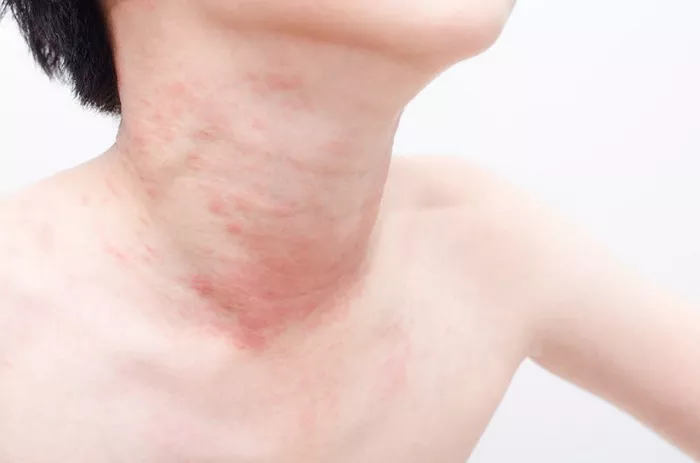Eczema, a chronic skin condition characterized by inflammation, itchiness, and redness, affects millions worldwide. While its exact cause remains elusive, the triggers and mechanisms behind eczema flare-ups and spread are well-documented. By unraveling these complexities, individuals can adopt proactive strategies to manage and mitigate its impact on their lives. In this comprehensive guide, we delve into the multifaceted aspects of eczema spread, from its triggers to prevention and treatment strategies.
Triggers of Eczema Flare-Ups
Eczema flare-ups can be instigated by a myriad of factors, ranging from environmental influences to lifestyle choices and underlying medical conditions.
1. Environmental Factors: Dry skin, a hallmark of eczema, is exacerbated by low humidity levels and exposure to irritants such as soaps, detergents, and fragrances. Allergens like pollen, dust mites, and pet dander can also incite inflammation, while weather changes and sweat can further aggravate symptoms.
2. Lifestyle Factors: Stress, lack of sleep, and poor dietary habits have been linked to eczema flare-ups. Additionally, certain fabrics, notably wool and synthetic fibers, can irritate sensitive skin, exacerbating the condition.
3. Medical Conditions: Eczema can be influenced by underlying medical conditions such as infections and hormonal changes. Food allergies, although not a direct cause of eczema, may trigger flare-ups in susceptible individuals.
Mechanisms of Spreading
Understanding how eczema spreads is crucial for devising effective management strategies. Several mechanisms contribute to its propagation:
1. Scratching and Rubbing: The incessant urge to scratch and rub affected areas can compromise the skin barrier, rendering it more susceptible to inflammation and infection. This perpetuates a vicious cycle of itch-scratch-itch, exacerbating symptoms.
2. Contact with Irritants or Allergens: Direct contact with irritants or allergens triggers an immune response, leading to localized inflammation and exacerbation of eczema symptoms. Identifying and avoiding these triggers are paramount in preventing flare-ups.
Prevention Strategies
Adopting preventive measures is paramount in managing eczema and minimizing its spread. Key strategies include:
1. Moisturizing Regularly: Emollients and moisturizers help replenish lost moisture, fortifying the skin barrier and preventing dryness—a cornerstone in eczema management.
2. Identifying and Avoiding Triggers: Keeping a meticulous journal to track potential triggers enables individuals to make informed lifestyle choices and avoid exacerbating factors.
3. Stress Management Techniques: Stress reduction techniques such as yoga, meditation, and deep breathing exercises can ameliorate eczema symptoms by modulating the body’s stress response.
4. Following a Healthy Diet: Consuming a well-balanced diet rich in fruits, vegetables, and omega-3 fatty acids fosters skin health and may alleviate eczema symptoms.
5. Proper Sleep Hygiene: Prioritizing adequate sleep is essential for bolstering the immune system and reducing inflammation—a cornerstone of eczema management.
Treatment Options
While prevention is key, effective treatment modalities play a pivotal role in managing eczema flare-ups. Treatment options include:
1. Topical Corticosteroids: These anti-inflammatory agents are commonly prescribed to alleviate itching, redness, and inflammation associated with eczema flare-ups.
2. Emollients: Emollients and moisturizers form a crucial component of eczema management by hydrating the skin and reinforcing its natural barrier function.
3. Antihistamines: Oral or topical antihistamines can provide symptomatic relief by alleviating itching—a hallmark of eczema.
4. Light Therapy: Phototherapy, under medical supervision, involves exposing the skin to specific wavelengths of light, effectively reducing inflammation and itching associated with eczema.
When to See a Doctor
While eczema can often be managed with home remedies and over-the-counter treatments, certain scenarios warrant medical attention:
1. Severe or Widespread Eczema: If eczema symptoms are severe or affect a large area of the body, seeking medical advice is imperative.
2. Ineffectiveness of Home Treatments: If home remedies fail to alleviate symptoms or if eczema worsens despite intervention, consultation with a healthcare professional is recommended.
3. Signs of Infection: Redness, swelling, or pus formation at the affected site may indicate secondary bacterial or fungal infection, necessitating prompt medical evaluation and treatment.
Conclusion
In conclusion, understanding the triggers and mechanisms underlying eczema spread empowers individuals to adopt proactive strategies for its management and mitigation. By implementing preventive measures, identifying triggers, and seeking timely medical intervention when necessary, individuals can navigate the challenges posed by eczema and reclaim control over their skin health.


























